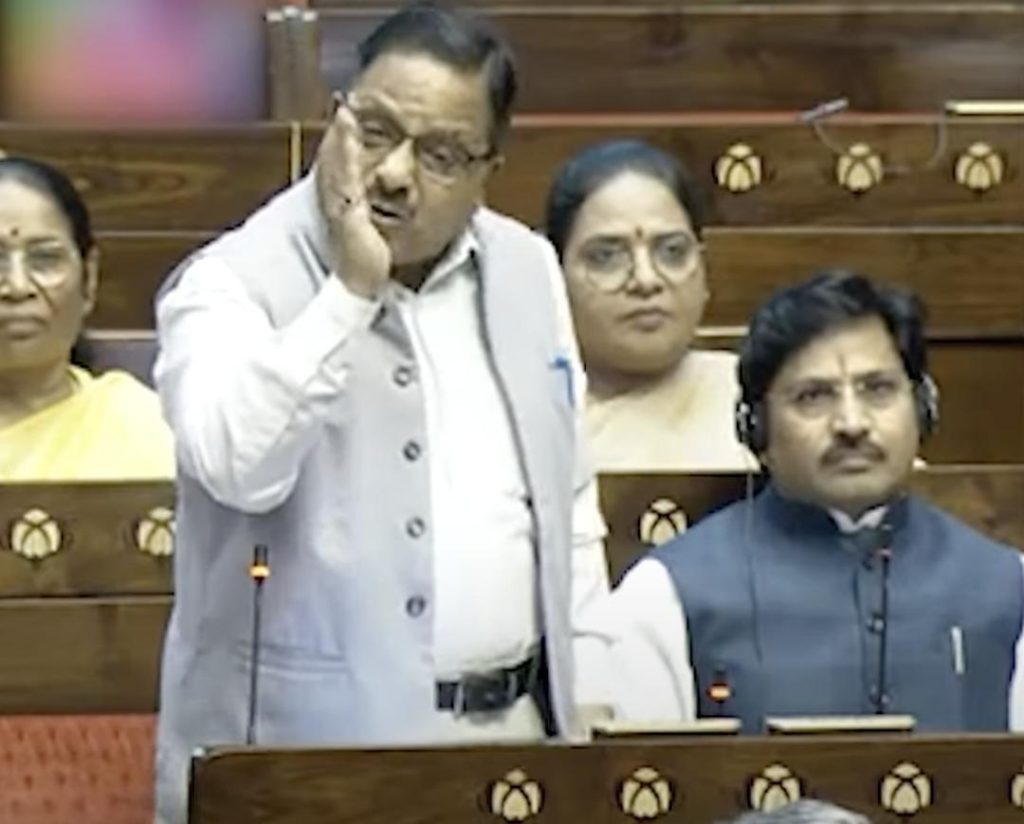
Title: Should I read Quran & tell you what’s written in it: BJP MP Radha Mohan Das on Waqf Bill
The Waqf Bill, a contentious piece of legislation in India, has sparked heated debates and discussions in the country’s parliament. Amidst the intense discussions, a BJP MP, Radha Mohan Das, raised a question that has left many wondering. During the debate on the Waqf Bill, Das asked if he should read the Quran and tell what is written in it. The question was made in the context of the Waqf Board’s alleged mismanagement of properties, which has been a long-standing issue in the country.
Das’s question was directed at the Waqf Board, which is responsible for managing properties and institutions that are considered sacred in Islam. The Waqf Board has been accused of mismanaging these properties, leading to allegations of corruption and embezzlement. Das’s question was an attempt to highlight the lack of transparency and accountability in the way the Waqf Board operates.
In his statement, Das referred to a specific verse in the Quran, which he claimed stated that even if one rupee is given to anyone, there should be a written record. He then went on to say that the Waqf Board has many properties, but there is no written record to account for them. This statement has sparked a lot of debate and controversy, with many Muslims accusing Das of misinterpreting the Quran and using it to further his political agenda.
The Waqf Bill is a piece of legislation that aims to reform the way the Waqf Board operates. The bill proposes to make the Waqf Board more accountable and transparent, by introducing measures such as regular audits and monitoring of its activities. The bill also aims to prevent the misuse of Waqf properties and to ensure that they are used for the benefit of the community.
The Waqf Board has been accused of mismanaging Waqf properties, which has led to a loss of faith among many Muslims in the institution. The properties managed by the Waqf Board include mosques, madrasas, and other religious institutions. The board is responsible for maintaining these properties and ensuring that they are used for the benefit of the community.
Das’s question has sparked a lot of debate and controversy, with many Muslims accusing him of misinterpreting the Quran and using it to further his political agenda. However, Das’s question has also highlighted the need for transparency and accountability in the way the Waqf Board operates. The Waqf Board has been accused of mismanaging Waqf properties, which has led to a loss of faith among many Muslims in the institution.
The controversy surrounding Das’s question has also highlighted the importance of understanding the Quran and its teachings. The Quran is the holy book of Islam and is considered the word of God by Muslims. It contains guidance and teachings that are meant to be followed by Muslims. However, the Quran is also a complex and nuanced text, and its teachings can be interpreted in different ways.
In conclusion, Das’s question about whether he should read the Quran and tell what is written in it has sparked a lot of debate and controversy. The question was made in the context of the Waqf Bill and the alleged mismanagement of Waqf properties by the Waqf Board. While Das’s question has been criticized by many Muslims, it has also highlighted the need for transparency and accountability in the way the Waqf Board operates. Ultimately, the controversy surrounding Das’s question serves as a reminder of the importance of understanding the Quran and its teachings.
News Source:



